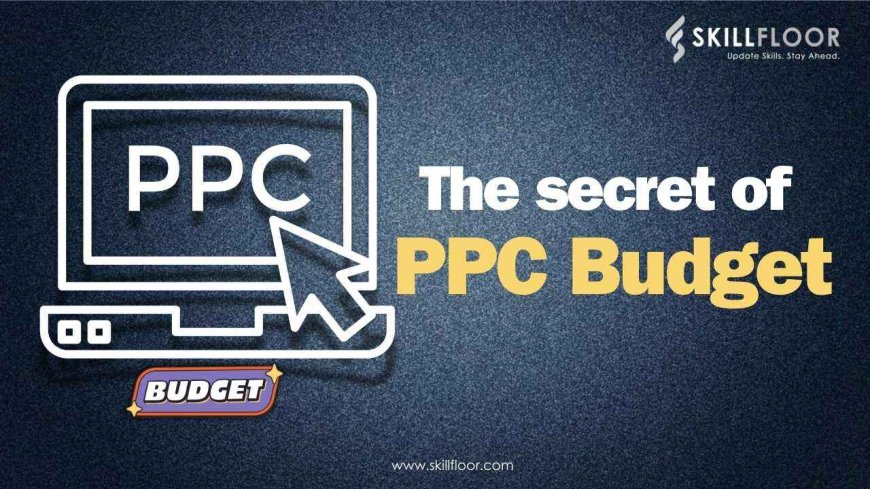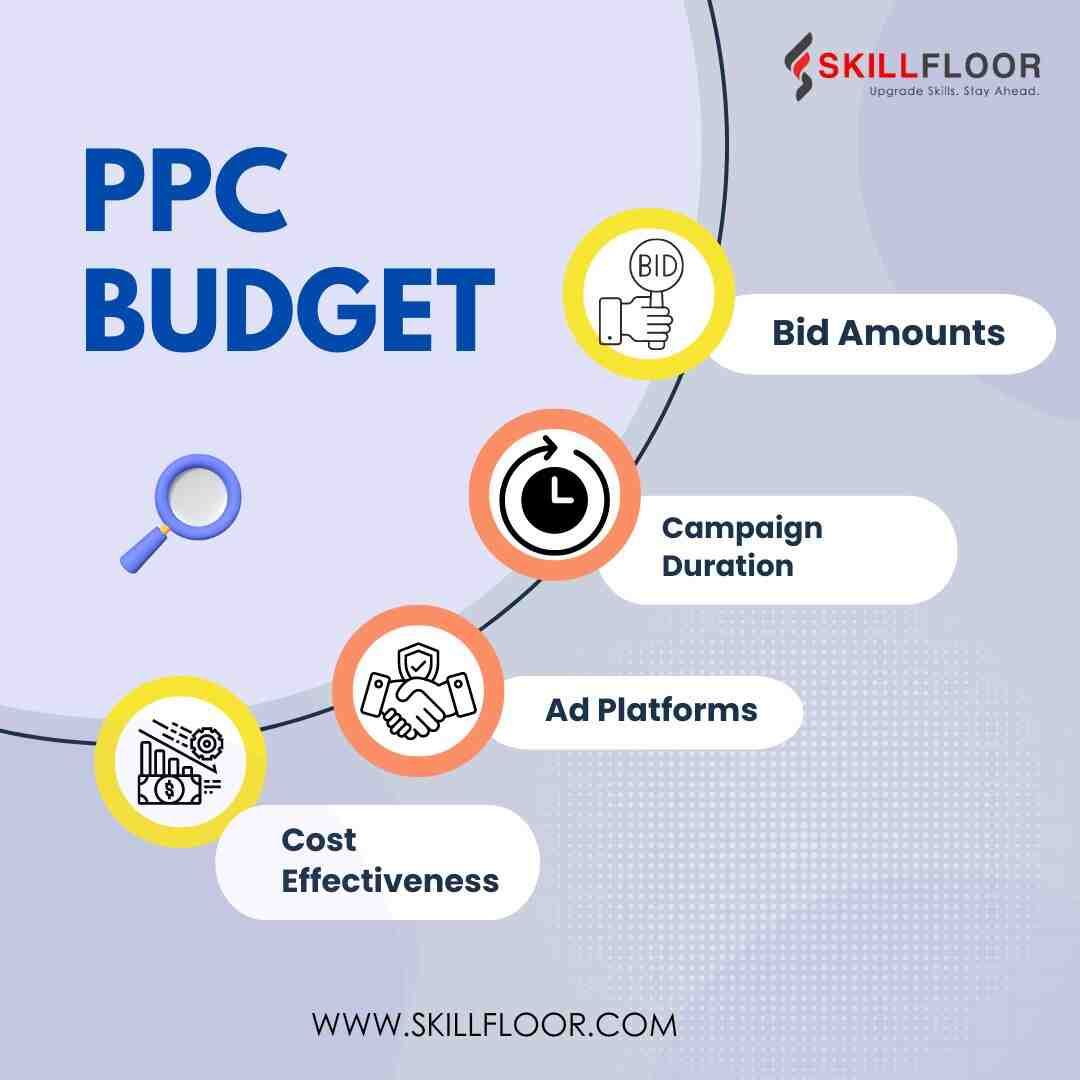PPC Budget: Basics to Advanced Tactics
Master PPC budgeting from basics to advanced strategies. Optimize spending, maximize ROI, and dominate paid advertising.

Hey, there! Come to an introduction to the field of PPC budget management. Whether you're just getting started or looking to improve your techniques, is here to help. Pay-per-click (PPC) advertising can appear to be a challenging task, but with the appropriate technique, you can maximize your spending and achieve excellent results. , let's go over how to get the most out of your PPC budget, from basics to advanced strategies!
Understanding the Basics of PPC Budget
When planning your PPC Budget, it’s important to consider the average cost-per-click (CPC) on various platforms. The CPC represents how much you’ll pay each time someone clicks on your ad, and it varies widely depending on the platform and industry. Let’s break down the average CPC for some major advertising platforms:
1. Bid Amounts: How They Impact Your PPC Budget
Setting Bids:
-
Decide how much you’re willing to pay per click. You can set bids manually or let the platform adjust them for you automatically.
-
Manual Bidding: You control the bids for each keyword or ad.
-
Automatic Bidding: The platform adjusts your bids to meet your campaign goals, like getting the most clicks or conversions for your budget.
Adjusting Bids:
-
Increase bids for keywords that perform well and lower them for those that don’t.
-
You can also adjust bids based on device type, location, and time of day to get better results.
Staying Competitive:
-
Check what your competitors are bidding using tools like SEMrush to ensure you’re competitive without overspending.
Planning Campaign Duration
Campaign duration is the time frame your ads will run. Here’s how to plan it effectively:
Short-Term Campaigns:
-
Perfect for limited-time promotions or events. They require a higher daily budget to make an impact quickly.
Long-Term Campaigns:
-
Ideal for ongoing goals like brand awareness. Spread your budget over weeks or months for steady performance.
Ad Scheduling:
-
Show your ads at times when your audience is most likely to see them. For example, run restaurant ads around meal times.
Budget Pacing:
-
Spread your spending evenly over the campaign to avoid running out of budget too soon.
campaign scheduling, short-term campaigns, and long-term campaigns
Choosing Ad Platforms
Selecting the right ad platforms is crucial for making the most of your PPC Budget. Here’s a quick guide:
Google Ads:
-
Best for reaching people who are actively searching for your products or services. It’s effective for capturing high-intent traffic.
Facebook Ads:
-
Great for targeting people based on their interests and demographics. It’s useful for brand awareness and engagement.
LinkedIn Ads:
-
Ideal for B2B marketing. Target professionals based on their job titles and industries. It’s pricier but effective for reaching business audiences.
Bing Ads:
-
A cheaper alternative to Google Ads with less competition. It can reach a slightly different audience, which might be beneficial.
Amazon Ads:
-
Perfect for e-commerce businesses to promote products directly on Amazon. It’s very effective for driving sales on Amazon’s platform.
Google Display Ads:
-
Affordable for broad reach. Use these for brand visibility across various websites.
|
Platform |
Average CPC |
|
LinkedIn Ads |
$5.26 |
|
Google Ads, search |
$2.69 |
|
Bing Ads |
$1.54 |
|
Amazon Ads |
$0.91 |
|
Facebook Ads |
$0.83 |
|
Google Ads, display |
$0.63 |

Setting Up Your PPC Budget
1. Identify your goals
The first stage in creating your PPC budget is determining what you want to achieve with your campaign. Are you wanting to improve traffic to your website, create prospects, or boost sales? Each of these objectives necessitates a unique strategy and money allocation. For example, if you want to increase sales, you may need to spend more money on high-intent keywords that are more likely to convert. Identifying your PPC goals and campaign objectives will help to shape your budget and drive your overall PPC strategy.
2. Research your keywords
Keywords are the foundation of any PPC campaign and play an important part in establishing your PPC budget. To build an effective budget, you must first determine the cost and competitiveness of the keywords you intend to target. Tools such as Google Keyword Planner are critical for this study. They give you an idea of how much you should bid for each term and how competitive the market is. Conducting thorough keyword research and using tools such as the keyword planner will allow you to make more educated judgments about where to devote your PPC budget.
3. Calculate your daily and monthly spending
After you've defined your goals and researched your keywords, the next step is to find your daily and monthly spending, which are important components of your PPC budget. Your daily budget is the amount of money you intend to spend each day on PPC ads. To calculate your monthly spending, double this by the number of days your campaign will run. This projection guarantees that you manage your spending wisely and stay within your PPC budget. Setting a clear daily and monthly budget helps you stay in charge of your expenses and keeps your campaign on track.
4. Divide Your Budget by Campaign
When managing several campaigns, it is important to manage your PPC budget wisely for each one. Not every campaign will have the same significance or estimated return on investment (ROI). Optimize your expenditure by allocating more of your PPC budget to initiatives that are closely aligned with your objectives and are likely to succeed. This strategic budget allocation guarantees that you get the most out of your PPC budget, increasing the effectiveness of your PPC efforts and producing the greatest results possible.
Advanced Tactics for PPC Budget Optimization
1. Use automation tools
Automation technologies help you manage your bids and budgets more efficiently. For example, Google Ads provides PPC automation capabilities like Smart Bidding. This application leverages data to change bids in real time, allowing you to optimize your PPC budget without requiring frequent personal intervention. Smart bidding allows you to focus your efforts on conversion-driven initiatives while keeping costs under control.
2. Focus on Audience Targeting
To increase the effectiveness of your ads, look beyond keyword targeting. Use demographic, interest, and online behavior data to improve your audience targeting. For example, personalize your adverts to target age groups or hobbies. This strategy ensures that your PPC budget is spent on targeting people who are more likely to be interested in your goods. Effective demographic targeting connects you with the correct audience and boosts the likelihood of converting clicks into buyers.
3. Improve your quality score
Google's Quality Score measures how relevant and useful your adverts are to users. A higher Quality Score might result in reduced expenses and better ad placements. To boost your Quality Score, ensure that your advertising closely matches your keywords and that your landing pages offer a positive user experience. This involves having clear, relevant content and easy navigation, improving ad relevancy, and making the best use of your PPC budget.
4. Optimize landing pages
Even the best ads will be ineffective if they link to poorly designed landing pages. Make sure your landing pages are optimized for a seamless user experience and good conversion rates. Landing page optimization methods include fast loading times, clear calls-to-action, and content that fits your ad's promise. By focusing on conversion rate improvements, you ensure that your PPC budget is fully utilized, converting visitors into clients.
Making Informed PPC Budget Decisions
Understanding the average CPC across different platforms allows you to make more educated decisions about how to distribute your PPC budget. You can optimize your ad expenditure and maximize your return on investment by aligning your budget with your business objectives and target audience.
Each platform provides unique benefits, whether you're focusing on high-intent search advertisements, broad-reach display ads, or specific social media campaigns. The idea is to find a balance between cost and the possibility of reaching your marketing goals, ensuring that every dollar of your PPC budget is working for you.





























































